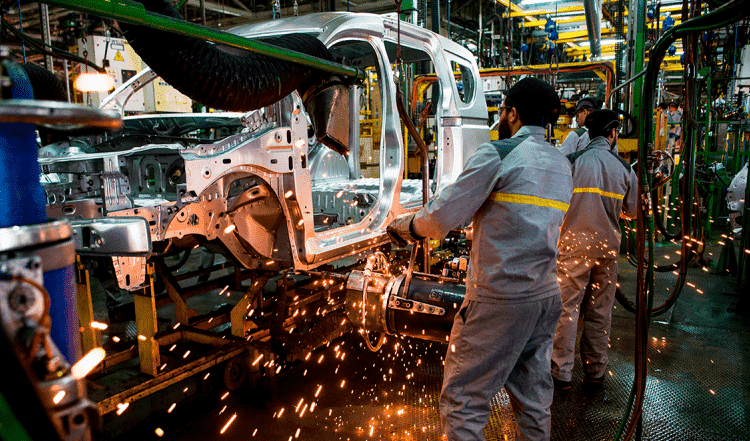Morocco’s Industrial Sector Reports Steady Business Climate in Second Quarter

Rabat — Morocco’s industrial sector maintained a stable business environment during the second quarter of 2025, with the majority of companies reporting normal operating conditions, according to a new survey by Bank Al Maghrib (BAM).
The central bank’s quarterly business survey found that 71% of industrial companies described the business climate as “normal,” while only 16% considered it “unfavorable” during the April-June period.
Textile and chemical sectors lead positive outlook
The textile and leather industry showed the strongest confidence, with 89% of companies rating conditions as normal and just 11% viewing them unfavorably.
The chemical and petrochemical sector followed closely, with 75% reporting normal conditions and 10% describing them as difficult.
However, the food processing industry faced more challenges. Only 67% of agribusiness companies called conditions normal, while 22% found them unfavorable. The mechanical and metallurgy sector saw 29% of firms reporting normal conditions and 14% describing difficulties.
Supply chains function smoothly
Most companies experienced smooth supply chains during the quarter. BAM’s survey revealed that 87% of industrial firms found supply conditions normal, while only 13% encountered difficulties.
The chemical and petrochemical sector faced the most supply challenges, with 20% of companies reporting problems..
The food processing industry saw 12% of firms struggle with supplies, while mechanical and metallurgical companies reported a 10% difficulty rate.
Textile and leather companies experienced virtually no supply problems.
Employment levels hold steady
Staffing levels remained largely unchanged across Morocco’s industrial sectors. The survey showed that 78% of companies kept their workforce stable, while 18% increased their employee numbers.
The food processing sector showed the highest stability, with 84% of companies maintaining current staff levels and 16% hiring more workers.
Chemical and petrochemical firms reported 81% stable employment and 15% growth.
Mechanical and metallurgical companies saw 78% stability and 17% expansion, while textile and leather businesses recorded 69% stable staffing and 19% increases.
Looking ahead to the next three months, companies expect employment patterns to continue. BAM found that 83% of firms anticipate stable staffing levels, while 16% plan to hire additional workers.
Production costs show mixed trends
Production costs varied significantly across different industrial sectors during the second quarter. Overall, 57% of companies reported stable unit production costs, while 28% saw increases.
The chemical and petrochemical industry faced the highest cost pressures, with 35% of companies experiencing rising expenses. Food processing firms saw more moderate increases, with 21% reporting higher costs.
Mechanical and metallurgical companies bucked the trend, with half reporting lower production costs. Textile and leather manufacturers generally maintained stable cost structures.